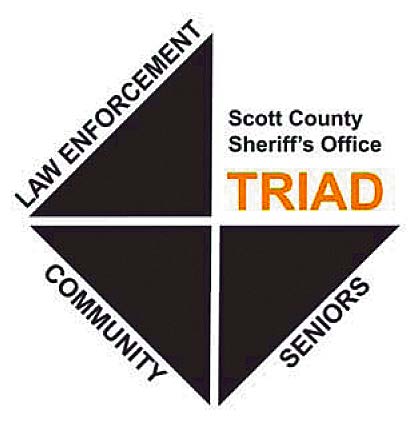May 31, 2017
News from Seniors And Law Enforcement Together (SALT)
 That IRS Call Might Now Be Legit!
That IRS Call Might Now Be Legit!
For years, we’ve given you this advice: The caller claiming to collect on an IRS debt is not legitimate, so hang up the phone.
There’s a new twist: Now it’s possible an IRS debt call is legitimate after all—but only with certain types of debts
and only under limited circumstances and utilizing strict procedures. A federal law that Congress enacted in late 2015, called the IRS Private Debt Collection Program, authorizes the IRS to use private collection agencies to call certain taxpayers who owe IRS debts. The IRS began implementing the program in April.
The debts that private collection agencies may attempt to recover are tax debts that the IRS no longer actively seeks to collect – they are generally older debts. But keep these important points in mind to help you understand whether an IRS debt call is legitimate:
The IRS will notify you by mail that it is transferring an outstanding debt to a private collection agency. The private debt collection agency will send a second, separate confirmation letter. That means you will ALWAYS receive several mailed collection notices before receiving a call.
Private collection agencies calling on behalf of the IRS will identify themselves as independent contractors of the IRS collecting taxes. The only four agencies authorized to collect on behalf of the IRS are CBE Group of Cedar Falls, Iowa; Conserve of Fairport, New York; Performant of Livermore, California; and Pioneer of Horseheads, New York.
Private collection agencies calling on behalf of the IRS will NOT request immediate payment over the phone through prepaid cards, gift cards or wire transfers. Collection agencies will urge payment by check payable to the U.S. Treasury and mailed directly to the IRS, NOT a private collection agency. They will also provide electronic payment options available ONLY through the IRS website at www.irs.gov/payments.
Private collection agencies will NOT threaten arrest by law enforcement for not paying.
Private collection agencies working on behalf of the IRS are required to abide by the Fair Debt Collection Practices Act, be courteous, and respect taxpayer rights.
If you would like to confirm whether you owe a debt to the IRS, call the IRS at 800-829-1040.
While this type of call may be legitimate in very limited circumstances, there are countless scams targeting taxpayers that are not legitimate.
IRS Impersonation Scams: A live or automated caller claiming to be an IRS agent says you owe back taxes or fees and demands immediate payment through a money card or wire transfer. The caller may manipulate your caller-ID display to trick you. The IRS will NEVER call and demand immediate payment over the phone—you’ll first receive mailed notices. The IRS NEVER seeks prepaid card numbers or threatens arrest. Through a written notice, the IRS will give you the chance to question a debt or appeal it.
IRS Email Scams: Criminals use emails that look official to trick you into providing or “confirming” personal or financial information, or clicking on a link that will either damage your computer/device or enable someone to view its contents. These links may direct you to a website that appears as a
legitimate IRS site but is not. Remember, the IRS generally does not initiate contact with taxpayers through email to request personal or financial information. Also, criminals
send fake notices from legitimate tax preparation service providers that seek personal information or try to get you to click on a link.
Tax-Related Identity Theft: This occurs when a criminal uses your Social Security number to file a false tax return in your name and collect a tax refund. Contact the IRS immediately if you receive a tax-related notice that an employer you don’t know paid you, or that the IRS recorded a tax return from you and you didn’t file one.
Report IRS tax scams to the agency that provides independent IRS oversight: the U.S. Treasury Inspector General for Tax Administration (TIGTA). Go to www.tigta.gov, or call 800-366-4484. You can also report IRS tax scams to the Federal Trade Commission (FTC) at www.ftc.gov, or the Office of the Attorney General of Iowa’s Consumer Protection Division at consumer@iowa.gov or 515-281-5926 (outside of the Des Moines metro area, the toll-free number is 888-777-4590).
Filed Under: Community, Finance, News, Retirement
Trackback URL: https://www.50pluslife.com/2017/05/31/news-from-seniors-and-law-enforcement-together-salt-23/trackback/


